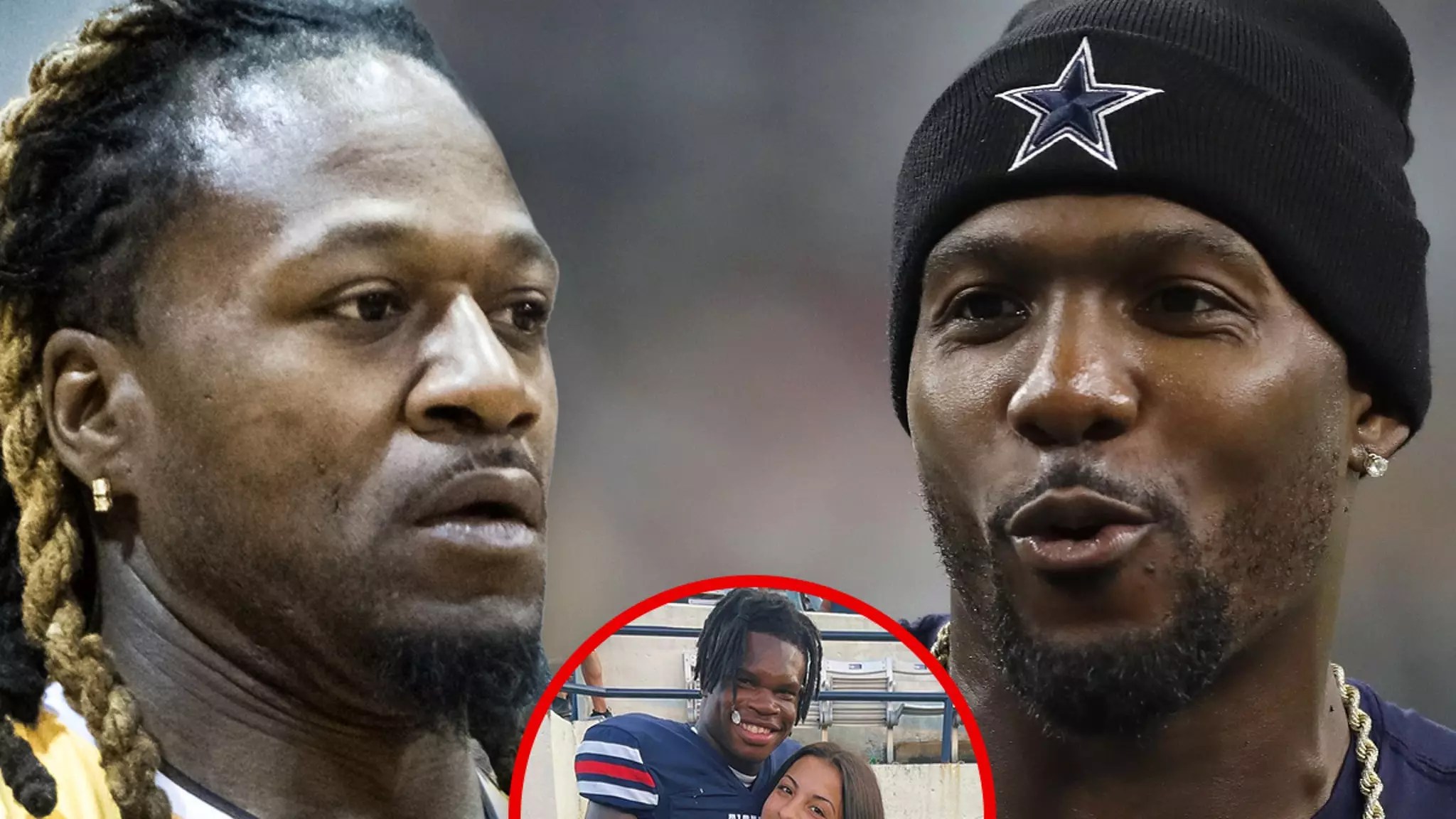In recent weeks, the relationship between rising football star Travis Hunter and his fiancée, Leanna Lenee, has sparked heated discussions across social media platforms. While public interest in the lives of athletes is not new, the intensity of scrutiny that Hunter and Lenee have faced raises significant questions about the ethics of such public evaluations. Notably, former NFL cornerback Pacman Jones has come to Hunter’s defense, admonishing fellow NFL alum Dez Bryant for his unsolicited opinions on the couple’s relationship. With both Jones and Bryant prominently sharing their thoughts, this incident illustrates a broader societal issue: the obsession with scrutinizing personal lives in the sports arena.
Jones’s outburst on his “Pacman Jones Show” reflects a growing frustration with how athletes’ personal lives are often subject to public scrutiny. He emphasized that the nuances of someone’s relationship can rarely be understood from the outside looking in. By stating, “this is what he likes,” Jones challenges the notion that outside observers possess the authority or insight to dictate the validity of a couple’s relationship. This critique not only applies to Ramirez but extends to the plethora of social media users who feel entitled to analyze the intimate details of athletes’ lives.
Bryant’s public comment urging Hunter to reconsider his relationship further complicates an already sensitive situation. Suggesting that Hunter should seek a new partner based on limited information can be harmful and dismissive of the realities of personal relationships. This raises the larger question of accountability on social media, where individuals often feel emboldened to share polarizing opinions on deeply personal matters without sufficient context or understanding.
Jones’s assertion that “grown athletes should not go to Twitter to discuss another player’s relationship” uncovers the vulnerability athletes face in an era dominated by social media. Public figures like Hunter are in a unique position; their actions and relationships are subjected to perpetual evaluation by fans and peers alike. As Jones rightly points out, the private dynamics between Hunter and Lenee remain largely unknown to the public, making the opinions voiced by outsiders not only misguided but often damaging.
As our culture becomes increasingly intertwined with social media, it is essential for both fans and fellow athletes to approach discussions about personal relationships with empathy and restraint. Whether or not one approves of Hunter’s fiancée, it is critical to acknowledge the boundaries between public interest and private lives. In standing up for Hunter, Jones has sparked a necessary conversation about the impact of social media on personal relationships, urging us all to reconsider how quickly we pass judgment on the lives of others. The need for privacy and respect in the realm of personal relationships, especially for those in the public eye, must take precedence over fleeting social media commentary.







Leave a Reply